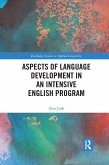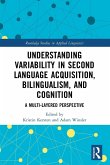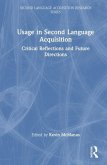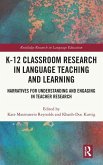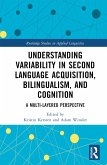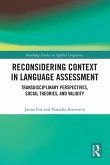This book explores self-concept in foreign language (FL) learning, tracing the trajectories of a group of Japanese language learners at an Australian university to illuminate new insights about the factors impacting positive self-concept and implications for language learning more broadly.
The volume calls attention to the ways in which learners' perception of themselves as FL learners plays a fundamental role in FL learning. Drawing on data from a longitudinal study, including student diaries, interviews and classroom observations, Yoshida outlines shifts in self-concept as learners progress from secondary school to university courses to study abroad and beyond. The book demonstrates how the learner journey is marked by a growing recognition of the importance of practice for achievement but also a greater sense of self-consciousness, with learners' agency in creating opportunities for themselves to practice their FL as a key factor in improving self-concept over time.This work offers unique observations about self-concept for learners who already 'have' global English as a first language, inspiring ways forward for future research and language teaching in other under-studied languages.
The book will appeal to students and researchers in applied linguistics, SLA and foreign language learning, as well as stakeholders in Japanese language programs.
The volume calls attention to the ways in which learners' perception of themselves as FL learners plays a fundamental role in FL learning. Drawing on data from a longitudinal study, including student diaries, interviews and classroom observations, Yoshida outlines shifts in self-concept as learners progress from secondary school to university courses to study abroad and beyond. The book demonstrates how the learner journey is marked by a growing recognition of the importance of practice for achievement but also a greater sense of self-consciousness, with learners' agency in creating opportunities for themselves to practice their FL as a key factor in improving self-concept over time.This work offers unique observations about self-concept for learners who already 'have' global English as a first language, inspiring ways forward for future research and language teaching in other under-studied languages.
The book will appeal to students and researchers in applied linguistics, SLA and foreign language learning, as well as stakeholders in Japanese language programs.
"Reiko Yoshida's study is richly grounded in qualitative data from learners of Japanese as they transition from secondary school to university, study abroad, and beyond. It illuminates the complex interplay between students' beliefs about language learning and their evolving self-concepts as language learners, as they negotiate new learning contexts, struggle with challenges, and exercise agency in pursuit of their ideal selves. This deeply engaging book will be of interest to all those concerned with understanding or researching the role of the self-concept in language learning."
- Professor Ema Ushioda, University of Warwick, UK
- Professor Ema Ushioda, University of Warwick, UK


